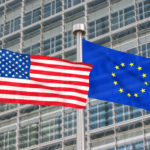The Vienna negotiations with Iran are on hold after last-minute disagreements.
Josep Borrell, the European Union’s high representative for foreign affairs, announced on Friday that negotiations between Iran on the one hand and China, France, Germany, Russia, the United Kingdom, the United States and the EU on the other would be put on hold. Borrell wrote on Twitter that “external factors” – he was likely alluding to the Russian invasion of Ukraine – were responsible for the delay.
A pause in #ViennaTalks is needed, due to external factors.
A final text is essentially ready and on the table.
As coordinator, I will, with my team, continue to be in touch with all #JCPOA participants and the U.S. to overcome the current situation and to close the agreement.
— Josep Borrell Fontelles (@JosepBorrellF) March 11, 2022
According to the EU foreign affairs chief, an agreement is now on the table and ready to be signed. It is intended to bring the United States, which left the accord in 2018, back into the Joint Comprehensive Plan of Action (JCPOA), agreed with Iran in 2015. In exchange for a lifting of sanctions on Iran, Tehran would commit to sending its stockpile of highly enriched uranium to Russia and let inspectors of the IAEA verify its nuclear sites.
For at least two years, Iran has been enriching uranium to up to 80 percent, thus nearing the capability of building a nuclear bomb. Under the JCPOA, Iran had committed to not exceeding an enrichment level of 3.67 purity, as well as to drastically reduce the number of centrifuges used in the process of enrichment and its stockpile of already enriched uranium.
E3 diplomat: "For us there is an extreme urgency to conclude" #IranTalks accord.
— laurence norman (@laurnorman) March 11, 2022
Experts suspect that Tehran could soon have enough material to build a nuclear bomb. Critics of the Vienna negotiation also say that lifting international sanctions currently in place would give Iran a bonanza and enable it to fund terrorist activities in other countries. Last week, Russia, which is one of the negotiating parties and itself subject to international sanctions over its invasion of Ukraine, announced that it wanted to get additional guarantees in the agreement, which threw a spammer in the works of the Vienna negotiators.
While a spokesman for the State Department in Washington had said that the US was “close to a possible deal”, even “in the coming days”, the secretary of Iran’s Supreme National Security Council, Ali Shamkhani, said the absence of a political will by the US had complicated the negotiations.
The EU’s negotiator in Vienna, Enrique Mora, said after Borrell’s announcement on Friday that the negotiators were “almost there” and had “a text in which almost everything is done.” In his opinion, both Iran and the United States had taken a very constructive and positive approach. “In order to keep this good spirit and atmosphere, it’s better to pause,” he said, adding that he hopes the talks could resume “very soon.”
Author: Michael Thaidigsmann






